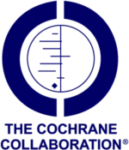About the Research Databases
The Wellness Evidence team of doctor consultants selected four of the most respected evidence-based medicine databases that are also particularly useful for wellness-focused research: Natural Standard, The Cochrane Library, PubMed and the TRIP Database.
Please read “Important Things to Know,” including info on each database.
We’ve made researching a particular therapy simple by pre-searching the evidence at each database. (See evidence below.) However, please note that evidence-based medicine relies on a research hierarchy, because not all evidence is created equal. Learn more about how the medical experts classify this research.
We’d like to hear from you. If there is a Wellness Evidence discipline you would like to see on these pages, please email us.
PubMED
A service of the U.S. National Library of Medicine, PubMed was released in 1996 as a free digital archive of references and abstracts on life sciences and biomedical topics. PubMed comprises 20-million-plus citations for biomedical literature from MEDLINE, life science journals and online books from around the world. Some 11.5 million articles are listed with their abstract and 3.1 million articles are available in full-text for free.
Cochrane
British epidemiologist Archie Cochrane is regarded as the originator of the Evidence-Based Medicine concept (in the 1950s). And the Cochrane Library is a collection of very high-quality medical databases, which have, at their core, the Cochrane Reviews, systematic reviews and meta-analyses which summarize and interpret the results of well-conducted, randomized controlled trials… the ‘gold standard’ in Evidence-Based Medicine.
The Cochrane Library is a subscription-based database but offers free access to abstracts.
- Access Cochrane’s research and search for “Biofeedback”
TRIP
The TRIP Database, launched in 1997, is a search engine designed to allow clinicians to quickly find answers to their medical questions using the best available evidence. Trip’s founders realized medical professionals were being forced to perform time-consuming searches at multiple websites to get at the most relevant information. So, they designed TRIP as a meta-search engine, allowing users to both simultaneously search thousands of databases, medical publications and resources, as well as easily filter the results: limiting searches to the most stringent, highest-quality medical evidence or expanding them to include results like patient information, news articles, etc.


























































